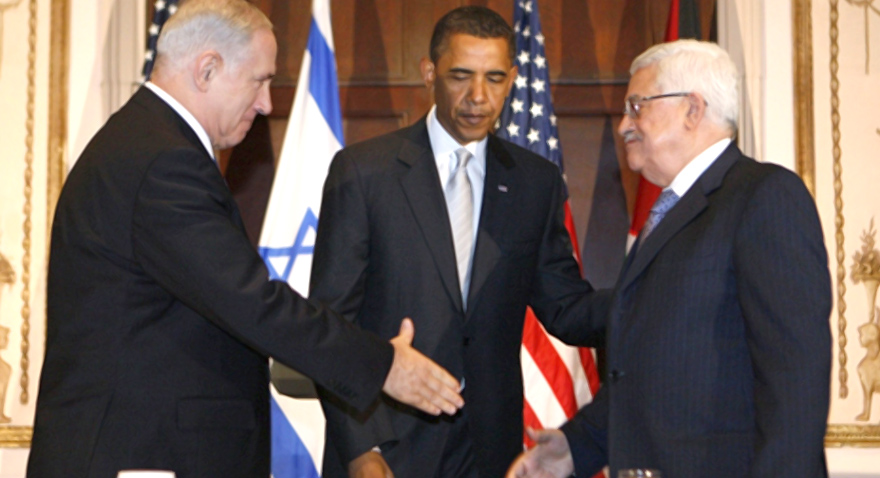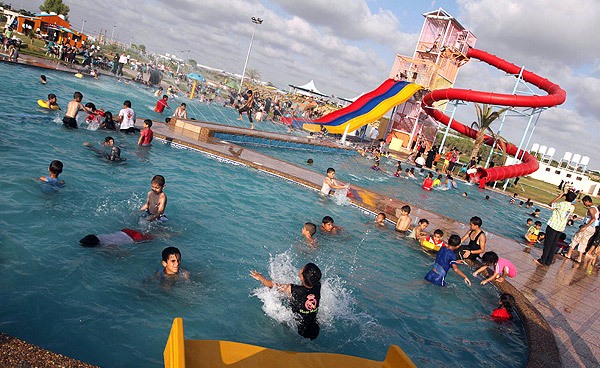Arab Theft of 1.1 Million Gallons of Water Daily in Judea and Samaria
 Netanyahu has done absolutely nothing about it.
Netanyahu has done absolutely nothing about it.
The Knesset Foreign Affairs and Defense Committee’s Subcommittee on Civil Affairs and Security in Judea and Samaria, headed by MK Mordhay Yogev (HaBayit HaYehudi), on Monday discussed the problems of water supplies to Judea and Samaria.
“The authorities have ‘dried up’ the residents of Judea and Samaria – Jews and Arabs alike,” Yogev said at the opening of the meeting. “This committee deals with various infrastructure-related issues, but water is the most basic and important of them all, particularly when we’ve reached a point where there is a shortage of drinking water. The Coordinator of Government Activities in the Territories and the Water Authority have known for many years what needs to be done, but it has yet to be done. We must assume all the powers, initiate a ‘defensive shield’ of infrastructures and urgently implement a master plan to supply water to the population.”

Water theme park located in Gaza.
According to data presented to the committee by Mekorot, the national water company of Israel is capable of supplying some 11.22 million gallons of water to the region daily, but the demand is for 12.76 to 13.2 million gallons daily; meaning, there is a daily water shortage of 1.5 to 1.98 million gallons. As a result, Mekorot has been forced to adjust its supply of water to the region and reduce the supply to each community, be it Jewish or Arab, by 15%.
The committee was also informed that some 1.1 Million gallons of water are stolen each day in Judea and Samaria through illegal connections to the area’s water infrastructure.
Yigal Lahav, head of Karnei Shomron Local Council, said, “For the past two years we have been receiving messages from Mekorot each morning telling us that there is no water in the pipes, and we have turned to all the relevant authorities. ‘Surprisingly,’ summer has arrived, the population is growing, and it is only getting warmer. This matter must be dealt with urgently and seriously.”
Water Authority Director Alex Kushnir said, “We must fight the thefts aggressively, as they are a major cause of the current crisis. To date, no indictments have been filed against water thieves. Force majeure is also at play in this crisis, because two projects which could potentially add more than 2.2 million gallons of water a day have been delayed. These projects would have resolved the current situation.”
“We took it upon ourselves to try and promote a master plan, though there is no statutory element which can currently provide a real forecast for population growth,” Kushnir noted. “The Water Authority does not have the power to give instructions beyond the Green Line, and I cannot force the Palestinians to convene the joint committee [on water], but I did meet with the Palestinian water minister, and he gave me information regarding their needs.”
MK Avi Dichter (Likud), chairman of the Foreign Affairs and Defense Committee, asked the government representatives who are responsible for the current situation and who is authorized to make decisions on the matter, and when he did not receive an answer, MK Yogev said that “the responsibility lies with the Minister of National Infrastructures and the Defense Minister, and from them down to the Coordinator of Government Activities in the Territories.”
Brigadier General Guy Goldstein, deputy Coordinator of Government Activities in the Territories, said, “We operate only in accordance with the government’s instructions. There needs to be a diplomatic decision for the entire region that will make it clear to the Water Authority how to plan and provide solutions.”
Yossi Dagan, head of the Shomron Regional Council, said, “My residents should not care that the State of Israel does not have the guts to stand up to the Palestinian Authority, which is not convening the joint water committee. The state must provide a solution for all our residents, in any way possible.”
A number of farmers from Judea and Samaria also attended the meeting. “Half of our agricultural lands have been dried up for the past three years and more,” one of them said. “A dunam (about 0.22 acres) is supposed to get 220 gallons of water a day, but it doesn’t get even one third of that. This is people’s livelihood. All those who are sitting here are responsible, and you must find a way to talk to one another.”
Subcommittee Chairman Yogev said follow-up meetings would be held, “because rather than crying about the past, we plan on fixing the future. The Minister of National Infrastructures must assume responsibility immediately, as long as the Defense Minister is still studying his office’s activities. Both ministries must advance the issue together.”
